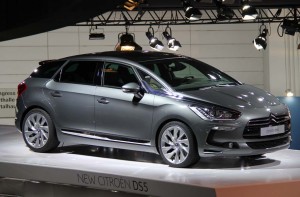
PSA is poised to be one of the first foreign automakers to gain a foothold in the more open Iranian market.
The PSA Group, the French automaker, is preparing to expand its production base in Iran by adding the Citroen brand to its burgeoning ventures in that country.
Prior to sanctions in 2012, Iran was Peugeot’s second-largest market after France. Moreover, the brand had remained available to Iranian consumers in limited quantity after the imposition of sanctions as its partner Iran Khodro continued to build some Peugeot models.
Once the company’s joint venture with Iran Khodro hits full capacity of 200,000 vehicles in 2018 and the first Citroen vehicles from its new joint venture with SAIPA the same year, it will give the company an increase in global sales, according to a new report from BMI Research, an arm of the Fitch Group.
(Newly open Iran not a windfall for American makers. Click Here for the story.)
PSA will be neatly positioned to leverage its previous popularity before sanctions were introduced to tap into burgeoning demand in the domestic vehicle market, the PSA Group plans to bring the Citroen brand back to Iran by investing $335 million as part of a joint venture SAIPA, which aims to build 150,000 vehicles a year by 2022.
The JV will give each company a 50% stake in the venture in which PSA will manufacture its Citroën branded vehicles at a plant in Kashan, outside of Tehran. The company plans to have its first batch of vehicles ready for market by 2018, BMI noted.
(Pact with Iran may open new markets for automakers. For more, Click Here.)
The new investment comes on the heels of an earlier deal worth $445 million that PSA made with Iran Khodro to bring the Peugeot brand back to the domestic market, the report added.
BMI noted that the continued investment by Western brands, such as PSA’s most recently announced investment, reflects our view that automotive companies will return to the Iranian market once international sanctions on the country start being lifted.
(New Audi cars will be able to “talk” to traffic lights, improve traffic flow. Click Here for more.)
The Iranian market totaled 1.4 million passenger vehicle sales in 2011, compared to 934,086 units sold in 2015. This pent-up demand, coupled with consumers’ preference for foreign automotive brands due to their superior quality, underpin a forecast of 12.6% annual average growth through 2020.
